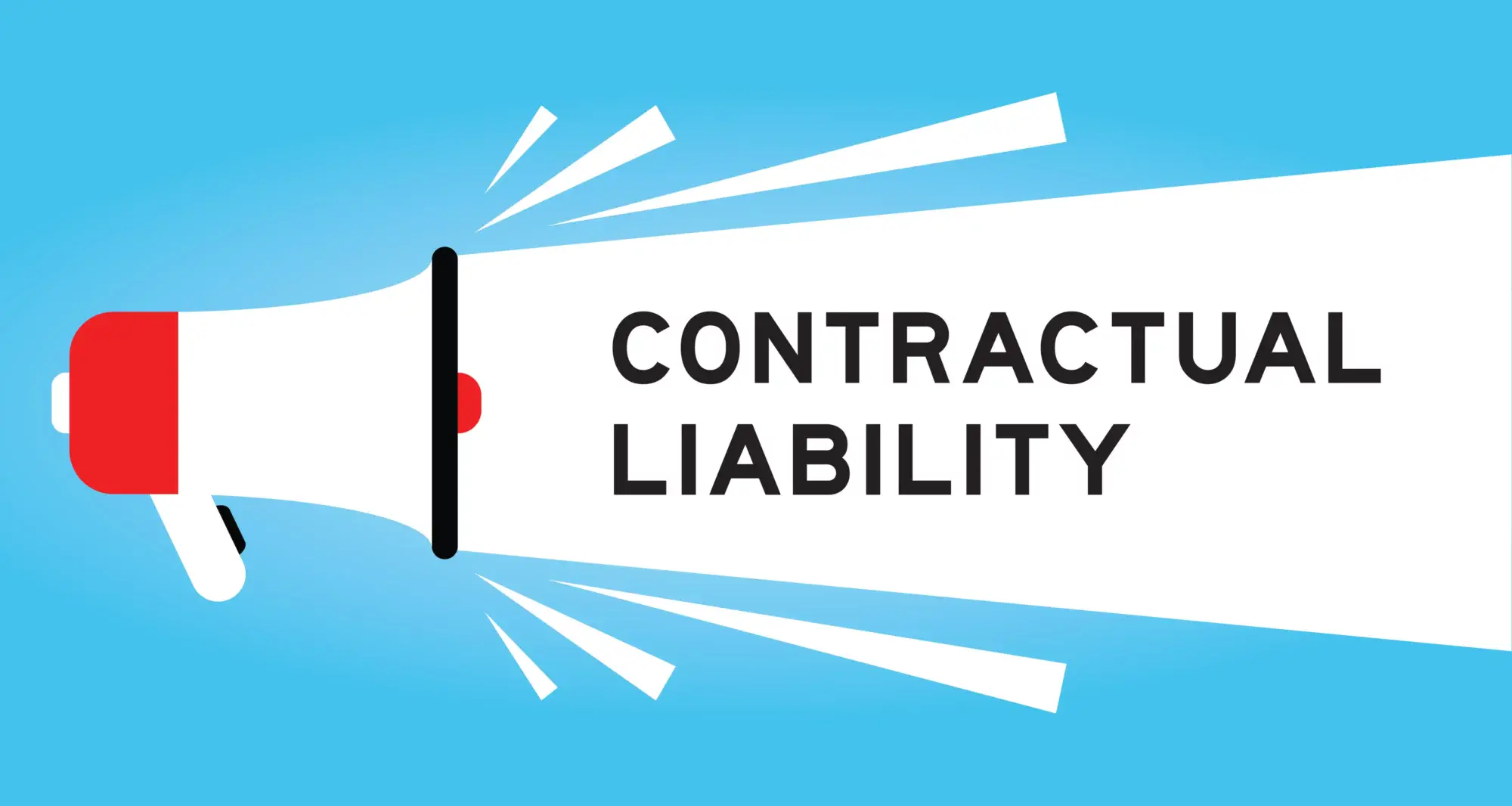Contractual liability insurance (CLIP) is a crucial component often included in general liability coverage for small businesses. This insurance safeguards entrepreneurs from legal and financial risks associated with contractual agreements.
In essence, a Contractual Liability Insurance Policy serves as protection when entering into contracts that impose legal and financial obligations. For instance, a lease agreement might hold you responsible for legal claims stemming from customer injuries at your retail store.
Commonly referred to as a “hold harmless agreement,” contractual liability insurance signifies your commitment to assume liability and financial obligations on behalf of the contracting party. This arrangement aims to shield them from potential legal claims and financial setbacks.
Understanding Contractual Liability Insurance Coverage

Contractual liability insurance is designed to cover the specific liabilities you undertake when entering into contracts, such as leases or other agreements. This coverage extends to various responsibilities, including:
Third-Party Bodily Injuries:
- Commercial landlords commonly require contractual liability agreements with their tenants. This arrangement holds the business renting the space responsible for customer accidents, shifting the liability away from the landlord.
- Example: If a customer files a lawsuit due to a slip-and-fall accident at your business, the contractual liability with your landlord mandates that your business bears the responsibility for any bodily injury claims.
Third-Party Property Damage:
- Construction and building trades often incorporate contractual liability clauses in their contracts. General contractors, for instance, may have agreements that make them responsible for specific claims and risks related to a project, such as property damage liability.
- General contractors may also establish liability agreements with subcontractors, outlining responsibilities for their work on a particular job.
In essence, contractual liability insurance safeguards you from the liabilities assumed through contractual agreements, offering protection in scenarios involving bodily injuries and property damage.
Contractual Liability Insurance: Exclusions

While contractual liability insurance provides valuable protection, it’s crucial to be aware of its exclusions. Here are key points to consider:
Failure to Meet Contractual Obligations:
- Contractual liability insurance does not cover lawsuits or claims arising from your business’s failure to fulfill contractual obligations. For instance, if a customer files a lawsuit due to project delays or incomplete work, such claims are typically excluded from coverage.
Incomplete or Unsigned Contracts:
- Contracts that are incomplete or unsigned by both parties are generally not covered by contractual liability insurance. It is essential for all parties involved to fully execute and formalize the terms of the contract for coverage to be applicable.
Understanding these exclusions is essential to managing expectations and ensuring that your business is adequately protected. It’s advisable to carefully review your contractual liability insurance policy to grasp the specific terms and conditions governing coverage. Additionally, consulting with an insurance professional can provide valuable insights into optimizing your coverage based on your business’s unique needs and potential risks.
Understanding Indemnity Agreements

An indemnity agreement, often referred to as an indemnity clause, is an integral component added to a contract, stipulating that your business assumes responsibility for specific losses and claims.
Alternatively known as a hold harmless clause or hold harmless agreement, this contractual provision designates your business, as the indemnitor, to absolve the indemnitee of any losses within the scope of your contractual liability. This may encompass scenarios like property damage or injuries sustained by customers.
These clauses are frequently incorporated into leases and various business contracts. Therefore, it is crucial to be cognizant of their presence and ensure that your business is adequately shielded from potential financial liabilities. Regular scrutiny of contracts and seeking legal advice can help safeguard your business’s interests in light of indemnity agreements.
Impact of Easements on Contractual Liability
Contractual liability Insurance considerations extend to easements on your business property, influencing the dynamics of risk transfer.
Easements are generally categorized as “insured contracts,” with exceptions for instances involving construction or demolition within a specified proximity to a railroad line, typically 50 feet.
For example, if your local municipality holds an easement for maintaining water and sewer lines that traverse your property, the municipality assumes liability for any work performed on your premises to service those lines. In practical terms, if the local government undertakes excavation on your property to access a water line, it bears responsibility for any resulting liabilities.
A parallel scenario is observed in elevator maintenance agreements between landlords and contractors. In cases of elevator shaft easements, the contractor indemnifies the property owner against legal actions related to the maintenance and operation of the elevator. Essentially, the contractor takes on all associated risks concerning the elevator’s operation.
Is Contractual Liability Insurance Included in General Liability Insurance?
While certain forms of contractual liability insurance are encompassed by commercial general liability insurance, it does not provide coverage for every potential risk.
General liability insurance addresses business risks like customer injuries and damage to their property, encompassing legal defense costs, settlements, and judgments. The policy extends to third-party claims related to injuries and property damage, including those arising from a lease or contract featuring an indemnity or hold harmless agreement.
For instance, commercial leases often mandate general liability coverage. As a lessee, signing a lease that holds the lessor harmless against customer injuries means assuming liability from the landlord. In such cases, your general liability policy already covers customer injuries, ensuring coverage for these risks.
However, general liability insurance may not apply if a customer files a lawsuit against you for breaching a contract, late delivery, inaccuracies, or non-delivery of services. In such instances, professional liability insurance, also known as errors and omissions insurance (E&O), becomes essential for coverage.
Factors Influencing the Cost of Contractual Liability Insurance for Small Businesses

Determining the cost of contractual liability insurance, which is often integrated into general liability coverage, involves various factors that contribute to the overall pricing. Here are key considerations affecting the expense for small business owners:
Location:
- The geographical location of your business plays a significant role in insurance pricing. Different regions have distinct risk profiles and varying legal environments, influencing the cost of insurance coverage.
Size of Your Business:
- The scale and nature of your business operations contribute to the cost of insurance. Larger businesses or those involved in high-risk industries may incur higher premiums due to increased exposure to potential liability claims.
Policy Limits:
- The coverage limits you choose impact the cost of your insurance. Opting for higher coverage limits provides greater financial protection but may result in higher premiums. Assess your business’s risk tolerance and financial capacity when selecting policy limits.
Claims History:
- Your claims history, including past liability claims, can influence the cost of insurance. A business with a history of frequent or significant claims may be considered higher risk, potentially leading to higher premiums.
Understanding these factors allows small business owners to assess and tailor their contractual liability insurance coverage based on specific needs and circumstances, ensuring adequate protection against potential risks.
Contractual Liability Endorsements: Standard vs. Blanket

When considering contractual liability coverage, businesses have the option to choose between standard and blanket endorsements. Each type serves a specific purpose, and understanding the distinctions is crucial for making informed insurance decisions.
Standard Contractual Liability Endorsement:
- A standard endorsement allows businesses to add coverage to specific contracts of their choosing. To acquire this endorsement, you provide your insurance company with a list of contracts you want to include in the coverage. This tailored approach offers flexibility and may be a cost-effective solution compared to a blanket endorsement.
Blanket Contractual Liability Endorsement:
- In contrast, a blanket endorsement provides coverage for all applicable contracts your business enters into. Unlike the standard option, you aren’t required to furnish a list of insured contracts to your insurance provider. While offering comprehensive coverage, a blanket endorsement is generally associated with a higher cost compared to a standard endorsement.
Choosing between standard and blanket endorsements depends on your business’s specific needs, the number of contracts involved, and your budget considerations. Tailoring your contractual liability coverage with the right endorsement ensures that your business is adequately protected while managing costs effectively.
Additional Coverages to Consider
Business Owners Insurance (BOP)
Providing comprehensive coverage, BOP is designed to safeguard your business against various risks, including property damage, liability, and business interruption. It offers a holistic approach to business protection.
General Liability Insurance
- Essential for trucking operations, general liability insurance covers bodily injury, property damage, and related liabilities. It shields your business from legal and financial risks associated with accidents or incidents involving your vehicles.
Commercial Umbrella Insurance
Offering an additional layer of liability protection beyond primary coverage limits, commercial umbrella insurance acts as a supplementary safeguard against catastrophic losses. It provides heightened security for unforeseen events.
Workers Compensation Insurance
Addressing the well-being of your workforce, workers compensation insurance ensures coverage for medical expenses and lost wages in the event of work-related injuries or illnesses. It is a crucial component for businesses with employees.
Errors & Omissions Insurance
Specifically tailored for professional services and advice, errors and omissions insurance shields your business from legal claims related to professional negligence or mistakes. It is vital for businesses offering specialized services.
Request a Quote
We specialize in a diverse array of insurance solutions crafted for businesses of any size. Our team of insurance agents is committed to tailoring policies that precisely align with the unique requirements of your business while ensuring competitive rates.
Customer satisfaction is our utmost priority, and we are dedicated to providing ongoing support to address any concerns you may have regarding your policy. Whether you’re launching a new business venture or refining your current coverage, our objective is to offer comprehensive protection. With the right insurance coverage, your business ventures are not just transactions; they evolve into avenues for success and growth.
For personalized guidance that aligns with your company’s specific needs, request an instant quote. We collaborate with over 30 carriers to secure the best available deals for insurance coverage tailored to businesses of any size.


